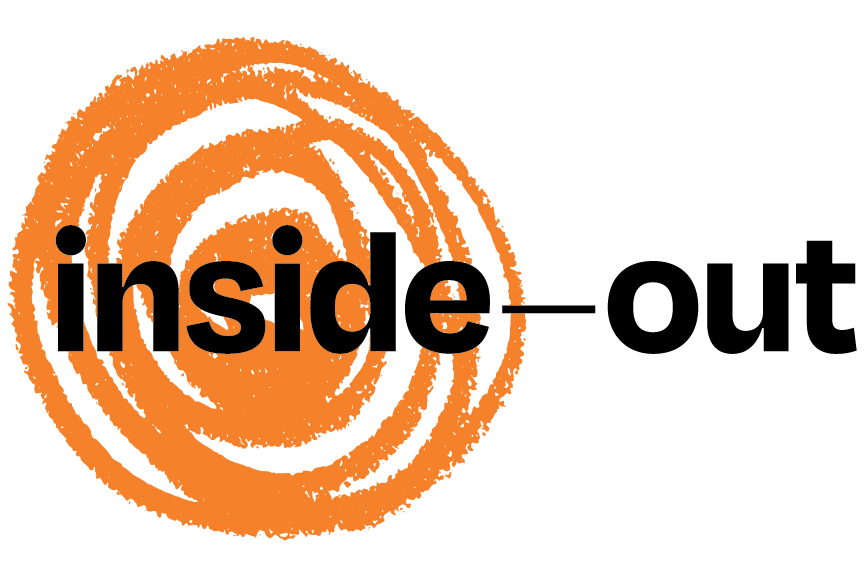Finding purpose after exiting your company
Welcome entrepreneurs. I’m so glad you’re here.
It’s been a whirlwind of a week for me, as we just kicked off the first working groups as part of the On Deck Scale fellowship. These groups are full of incredibly talented founders, each swimming through the waves of hiring, process development, fundraising and leadership growth involved in scaling a high-growth company.
It’s one of the most challenging of mountains, but scaling a company can also be a powerful driver for personal growth if you let it. I’m honored to walk with these talented entrepreneurs on their journey to the summit of both their companies, and themselves.
Having reached my own quasi-summit after 15-years, I was surprised to find that it didn’t actually solve all my problems. Instead of all my friends lifting me up on their collective shoulders while my competitors looked on in envy, it was…complicated.
I’ve learned I’m not alone in this experience. Like scaling, reaching the summit can change you, too, and in ways that are surprisingly (to me) consistent from founder to founder.
That’s what I want to talk about today. Life after exit.
How purpose changes after an exit
Signing the paper felt like I'd been punched in the gut, which surprised me. The new CEO had been in-chair for going on two months, both of us well into settling into our respective roles, so signing the paperwork should have been a mere formality. But it wasn't.
The moment I signed that resolution, officially removing myself from the CEO seat, I realized I had no idea who I was or what I was doing in the world. For the last decade, I saw in hindsight, it had all been so clear. I was the founder & CEO of my company, and my job, what I woke up and did every day, was whatever my company needed to hit the next milestone.
But that wasn't my job anymore. And sitting there in that boardroom, I realized I had no idea who I was anymore, or what to do with my life.
“You must give up the life you planned in order to have the life that is waiting for you.” — Joseph Campbell
Life After Exit: Navigating the Journey
For a founder, an exit is the culmination of the journey. The final success in a string of them; the proverbial pot of gold at the end of the rainbow. We chase the exit unquestioningly, so focused on attaining our goals that we never stop to consider what might come after.
Whether a $100m win or a fire sale, a celebration or a failure, what nobody tells you about an exit is that the leaving is its own special kind of challenge. Special, and yet surprisingly consistent from person to person.
Here's the typical process:
Exit.
Existential vacuum.
???
Realigned to purpose.
Understanding the Post-Exit Vacuum
Some founders confronted with this vacuum of purpose, they jump immediately into the next thing (usually one which will leave an even bigger dent in the Universe). If you exit your consumer app and can find purpose in a yet bigger consumer app, bless your heart, please run with everything you've got. Come read this article after your next exit.
If you find yourself struggling, on the other hand, know that you're not alone. Many founders struggle with step 3. I did. I experimented, jumping into each project with the same gusto, but I kept finding that I couldn’t recapture that sense of unquestioning purpose.
Try as I might, it just felt different.
What's going on
The salient issue, I learned, is that we evolve. As we mature our mind processes the world through an increasingly complex lens (more about this here), and part of that increase in complexity is a change in the way we construct meaning. Usually this is a gradual process, but for founders exiting companies, life can change in an instant.
Initially, we find purpose "out there." We select our life from a menu of available options (maybe: "founder"), and with that life comes a built-in purpose (maybe: "freedom" "success" "impact", or similar). Whatever life we choose, the purpose accompanying that life is an inherited, cultural one. Even though it feels profoundly important, it's not ours. It’s society’s; we’re just trying it on.
If we’re lucky enough to succeed in our purpose, which for a founder is often an exit, the surprising let down of that success calls into question the whole operation. We have a sense, for the first time, that the pot of gold at the end of the next exit/rainbow might be a similar disappointment, but we’re not sure where else to look. So we drift, interested in stuff, tinkering, but never quite able to embody a cause like we did the first time.
Nothing is wrong with us. In fact, I’ve come to learn that what’s happened is we’ve won our freedom. But freedom, when tasted for the first time, is disorienting as hell.
The purpose of life is a life of purpose. -- Robert Byrne
Exploring Evolving Purposes
The shift in how purpose is constructed
When we step outside of the framework of meaning that we inherit from society, when we see it as separate from us, its opinions (at least potentially) different from our opinions, for the first time we are free of it. We can live beyond the system of values that we inherit as young adults, and determine for ourselves the purpose of our lives.
But with this ultimate freedom, comes the ultimate responsibility. We’re responsible for what our lives mean, and nothing anyone else says, nobody’s opinions or recommendations, whether we’re lauded or shunned by society, none of that is a viable crutch any longer. It’s on us.
The implication is that we can no longer find purpose out there, as we once did. That process is broken, because anything we find will, by definition, not be ours, and so will ring hollow. We can no longer accept society’s definition of success as our own, so we can't find purpose anywhere, no matter how hard we look.
This doesn't mean we can't have purpose. It means the process of getting to purpose has changed.
We can't find it anymore. We must create it.
Creating Meaning: Post-Exit Strategies
As Irish poet David Whyte beautifully phrased it: “Our work is to make ourselves visible in the world. This is the soul’s individual journey, and the soul would much rather fail at its own life than succeed at someone else’s.”
Incidentally, David Whyte’s work deals with this in profound ways for the creatively inclined. If that’s you, see footnotes. If you’re more of a concrete thinker, here are the two processes laid out next to each other to illustrate contrast.
Finding Purpose:
Purpose is found in the world, and brought into yourself.
Meaning is derived from what, and how much, you get.
Success is a function of the outcome achieved.
Creating Purpose
Purpose is found inside yourself, and brought to the world.
Meaning is built from what, and how much, you give.
Success is a function of the work done, and the motivations behind it.
Once you've seen through the game, purpose (and for that matter, meaning itself) is no longer an exercise in discovery. It's self-expression. Meaning is derived from that act of self-expression itself, from the meaning you imbue to it alone and not any objective, socially recognized measurement. And whether you solve the problem you set out to is irrelevant. Success is in your dedicated attempt (this last one can be hard for the achievement-oriented among us to grasp, so consider that Dr. King didn’t end racial discrimination. He objectively failed at what he set out to achieve. And yet, we feel his impact in our souls. This is the power of the right attempt).
The question I asked myself throughout my journey became: “How can I, Ryan Vaughn, be the most useful to the world and its inhabitants?”
"The Dead Sea in the Middle East receives fresh water, but it has no outlet, so it doesn’t pass the water out. It receives beautiful water from the rivers, and the water goes dank. I mean, it just goes bad. And that’s why it is the Dead Sea. It receives and does not give. And we are made much that way, too. I mean, we receive and we must give. In the end generosity is the best way of becoming more, more, and more joyful.” -- Bishop Desmond Tutu
The Power of Community in Transition
It took me a year to figure this out. A year of searching, evaluating, meditating, hanging out with monks, and trying on new purposes, each of them feeling like they should be enough, but none of them feeling quite right. This is normal, and an important part of the process. Reaching the goals at the far end of your imagination is supposed to change you. As Pema Chodron says, it’s best to “lean into the sharp points,” and let them do their work.
For most of that year I felt like I was the only person in the Universe going through this. And then I reached out to a few friends in my tiny little town who had recently exited companies. Nobody had ever mentioned anything about this, but when I asked 60% of them were struggling with something similar. Most of them had never talked about it to anyone.
With a few emails I set up what I called “Founder’s Dinner,” which was a forum for a dozen exited founders to talk openly about post-exit life in a safe space. This series of dinners transformed 10-year business contacts into deep friends who support me and my Work to this day. Everyone’s journey was different, I learned, but each one taught me something. And processing my own journey with a community was so much more effective than doing so between my ears.
Acknowledging Post-Exit Challenges
If you find yourself going through this — buying fancy cars, traveling off into the woods to take psychedelics or however you're managing — I encourage you to reach out to folks in a similar situation, even if it seems like they’ve already figured everything out. Exited founders don't talk about this much (you're supposed to be so happy that it feels weird talking about being sad), but it's very common. And in my year of searching, the community of those Founder’s Dinners I created was the best force multiplier I found. When the whole world tells you to chase the next success, it’s helpful to have someone remind you what you’ve already learned: that success, by anyone else’s definition, is a sparkly mirage.
The more one forgets himself—by giving himself to a cause to serve or another person to love—the more human he is and the more he actualizes himself. What is called self-actualization is not an attainable aim at all, for the simple reason that the more one would strive for it, the more he would miss it. In other words, self-actualization is possible only as a side-effect of self-transcendence. -- Viktor Frankl
Not a cry for help. An acknowledgement of pain.
Realigning with Personal Purpose
The worldly rewards can be substantial, so no exited founder is looking for people to feel sorry for them as they figure out how to live post-exit. I am an incredibly privileged person speaking to incredibly privileged people, most of whom know just how privileged they are. Nevertheless, along with the rewards, it is worth being honest about the existential vacuum of purpose that often follows an exit, if only to help folks navigate the transition more quickly and get on with doing the work that they're meant to do.
Ryan Vaughn’s purpose (2021):
To help founders grow into extraordinary leaders and build life-giving companies, by becoming the fullest version of themselves.

